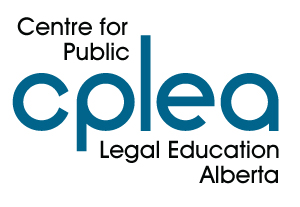This section of the Alberta Courts website provides information about court locations around the province, contact information and sittings.
There are three courts in Alberta administered by the province: The Court of Appeal of Alberta; the Court of King's Bench of Alberta; and the Provincial Court of Alberta. Other courts which administer laws in Alberta include the Federal Court of Canada, the Tax Court of Canada and the Supreme Court of Canada. There are also a number of boards and tribunals in Alberta whose decisions may be appealed to the courts.
The following resources can help you understand more about various courts and tribunals.
CPLEA Suggested Resources
Not sure where to begin finding answers to your questions. Get started with our suggested resources. See additional resources below for more information.
Alberta Resources
The Court of Appeal hears appeals from the Court of King's Bench, the Provincial Court and administrative tribunals. As well, the Court provides its opinion on questions referred by the Lieutenant Governor under the Judicature Act. The Court of Appeal's website includes links to information such as their: Announcements; Articling Program; Court of Appeal E-Filing; Frequently Asked Questions; History; Judgments; Judgments to be Filed; Judicial Dispute Resolution Guidelines; Locations; Sittings; Practice Notes/ Directions; Publications and Forms; and Subscription Services.
The Alberta Court of Justice is primarily the point of first entry into the justice system. This page connects to sections for Civil (Small Claims Court), Criminal, Family, Traffic and Youth. Each section has links to publications and forms, common questions, court sittings and so forth.
The Court of King's Bench is the Superior Trial Court for the Province, hearing trials in civil and criminal matters and appeals from decisions of the Provincial Court. The Chief Justice and other Justices of the Court of King's Bench are also judges of Surrogate Matters, which has jurisdiction over probate and administration of estate matters. Website sections: Announcements; Assignments; Articling Program; Civil Mediation; Commercial Practice; Dispute Resolution Project; Family; Frequently Asked Questions; Judgments; Locations and Sittings; Media Audio Recording; Practice Notes/ Directions; Publications and Forms
The Alberta Human Rights Act establishes the Alberta Human Rights Commission to carry out functions under the act. The Commission is an independent commission created by the Government of Alberta, which reports to the Minister of Culture and Community Spirit. The Commission has a two-fold mandate: to foster equality and to reduce discrimination. It fulfills this mandate through public education and community initiatives, through the resolution and settlement of complaints of discrimination, and through human rights tribunal and court hearings.
The Calgary Drug Treatment Court has been in operation since 2007, providing the only community alternative to incarceration for non-violent drug-addicted offenders whose crimes are driven by drug addiction. CDTC is an evidence-based program that integrates court intervention and treatment services to end drug-driven crime and assist participants to return to family, work and community.
This information discusses the procedures of the Civil Division of the Provincial Court. The Civil division is often referred to as Small Claims Court. The purpose is to make you aware of your legal rights and responsibilities. Information is provided by Calgary Legal Guidance funded in part by the Alberta Law Foundation.
The purpose of this guideline is to set out the criteria to be considered in initiating, prosecuting, and discontinuing appeals to the Court of Appeal of Alberta.
The Edmonton Drug Treatment and Community Restoration Court, or “EDTCRC” is intended to reduce drug-related crime through innovative approaches to dealing with offenders. The principles behind this program include recognized drug treatment court concepts, the concept of problem-solving courts, and restorative justice.
The mission of the Metis Settlements Appeal Tribunal (MSAT) is to promote self-governance, certainty, and respect within the Metis Settlements through adjudication, mediation and education. MSAT deals with land and membership disputes. MSAT also amends right of entry orders and settles compensation disputes for oil and gas activities on Settlement lands. MSAT may resolve other matters as called for in Metis Settlements General Council Policies and local Settlement by-laws.
The Office of the Appeals Advisor (OAA) was established to advance the interests of injured workers and their dependants. Appeals advisors are all certified in Tribunal Administrative Justice, are specialists in interpreting and applying the Workers' Compensation Act and WCB policies. They will walk you through the appeals process and act as your representative throughout. The OAA acts independently of WCB when representing workers and, whenever possible, they try to work directly with WCB's customer service areas to resolve issues so that a formal appeals hearing is not necessary. There is no charge to you for this service.
The Residential Tenancy Dispute Resolution Service (RTDRS) offers landlords and tenants an alternative means of resolving serious disputes outside of court. The Service is designed to be faster, more informal and less expensive than the courts. A tenant or a landlord who has concerns related to an eviction, unpaid rent/utilities, security deposit, damages, repairs or other common disagreements can use the service.
This online tutorial created by the Centre for Public Legal Education Alberta provides information about the structure of a trial after making a criminal complaint.
Traffic Court is part of the Alberta Court of Justice. It deals with offences pursuant to many provincial statutes and regulations, municipal bylaws and a few specified federal statutes. In spite of its name, Traffic Court is not limited to only hearing traffic related offences. Traffic Court does not deal with most offences created by federal statutes such as the Criminal Code and the Controlled Drugs and Substances Act.
Young persons aged 12-17 years of age who are charged with a Provincial offence are dealt with in the Youth Division of the Alberta Court of Justice. In some court locations there is a distinct Youth Traffic Court.
Trials in Traffic Court, whether involving an adult or a young person, are usually heard by a Justice of the Peace. However in some locations trials are heard by a Justice of the Alberta Court of Justice.
Courts Virtual Tour uses surround video to give a 360 degree view and navigation of Alberta Courtrooms. Virtual tours offer navigational links that allow you to move throughout the courtroom, tours include the: Court of Appeal; King's Bench Courtroom; Provincial Court; and a Large Trial Courtroom.
Canada/Federal
This webpage from the Canadian Legal Information Institute (CanLII) contains a listing of links to federal boards and tribunals in Canada (scroll halfway down the page). For a list of provincial and territorial boards and tribunals, click on the province/territory in the list on the left hand menu bar and then scroll down to the Boards and Tribunals list.
This website provides a wide range of information about the Cout Martial Appeal Court. This Court hears appeals from military courts which are known as courts martial. The courts martial have power to try military personnel and civilians accompanying such personnel abroad for crimes and offences against the Code of Service Discipline.
The Federal Court is Canada's national trial court which hears and decides legal disputes arising in the federal domain, including claims against the Government of Canada, civil suits in federally-regulated areas and challenges to the decisions of federal tribunals. Its authority derives primarily from the Federal Courts Act.
The Immigration and Refugee Board of Canada (IRB) is Canada's largest independent administrative tribunal. It is responsible for making well-reasoned decisions on immigration and refugee matters, efficiently, fairly and in accordance with the law. The IRBdecides, among other responsibilities, who needs refugee protection among the thousands of claimants who come to Canada annually.








Follow CPLEA